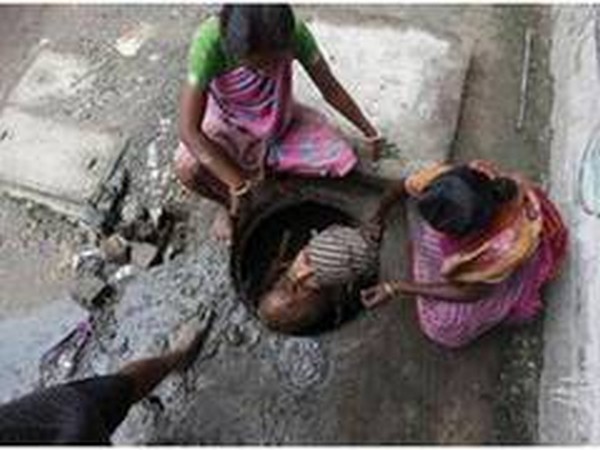The government has continued to enforce manual sewage cleaning in several areas of Delhi.
New Delhi: Several social activists in Delhi have raised their voices against manual scavenging, but the state government has overlooked their concerns and allowed carrying out the so-called “banned” activity in the congested areas of the state. The Prohibition of Employment as Manual Scavengers and their Rehabilitation Act 2013 clearly states the prohibition of manual scavenging in “all forms”. Also, it states that through the regular mandatory surveys, the rehabilitation of manual scavengers is to be identified and ensured. The 2013 Act also ensures punishment for engaging any individual for hazardous cleaning of sewer and septic tanks. However, the government has continued to enforce manual sewage cleaning in several areas of Delhi, including the places that have proper drainage facilities.
During a press conference on Thursday, while speaking on the continued harassment of Dalit workers, the national coordinator of Dalit Adivasi Shakti Adhikar Manch (DASAM), Ashok Kumar, said, “To stop manual scavenging, the government introduced sewage cleaning machinery. However, the designed machines cannot enter several congested areas of Delhi. Therefore, manual scavenging continues in several areas of Delhi.”
In such a state of affairs, the problems of contractual sewer workers in Delhi are acute as many workers do not know their rights and continue to work in dangerous circumstances. As per the survey conducted by DASAM, these workers don’t get any safety gear, soaps, oil and so forth. Most of the contractual sewer workers have no identity cards and work permits, while these workers keep on facing caste discrimination at their workplaces. The survey also states that most of the contractual sewer workers get the wages of four months while the contractor has a tender contract for six months. Also, around 25-35% of the wages are deducted by the contractors. These workers do not get any leaves or any vacation on government holidays. During medical emergencies, their salaries also get deducted.
The survey also states that due to the non-availability of insurance facilities, ESI or PF, the workers face difficulty at the time of occupational health hazards. Also, most of the diseases related to sewer cleaning are long-term and fatal. Most of the sewer workers do not raise their voices against the contractors and continue to live in fear of losing their jobs. The caste is a predominant factor in manual scavenging as most of the sewage cleaning workers belong to the Valmiki community, a Dalit caste. “Mostly people from the Valmiki community continue to do this profession, which exposes them to the various health hazards. Though the government has claimed that there are no deaths of sewer workers, data of the survey reveals different circumstances. We have found that there are many sewer workers who have died while continuing the profession. Many terms and conditions, which should have been implemented by the contractors, are not incorporated. They still work without safety measures or safety equipment. No sewer workers working on a contractual basis have ESI or PF or insurance,” Hemlata Kansotia, the National Convenor of the National Campaign for Dignity and Rights of Sewerage and Allied Worker, said during the conference.
Though the Delhi government manages to allocate thousands of crores rupees for the development of Dalits who work on contractual terms, no efforts have been made to lift the condition of the sewer workers in the state. Though manual scavenging has been banned since 1993, most of the sewer workers are considered permanent employees under the government. In 2020, India’s Union Minister for Housing, Urban Affairs and Minister for Petroleum and Natural gas, Hardeep Singh Puri, launched Safaimitra Suraksha Challenge across 243 cities to ensure that “no life is ever lost while cleaning sewer or septic tanks”. Although India had begun to outlaw the employment of manual scavengers in 1993, which again expanded in 2013, the Act made little impact. Till today, many people, specifically of the Valmiki community, continue to push into the profession.

